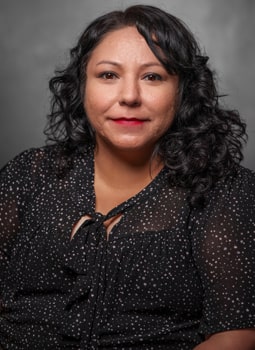B.A. in Criminal Justice
Complete your criminal Justice degree with us!
The courses required for the Criminal Justice major cover a variety of topics within the criminal legal system.
While students learn about the main branches of the criminal justice system, our courses also address and analyze the critical contemporary issues facing the criminal justice system.
Students learn how to apply the information they learned in class to their everyday life and careers.
Students gain an understanding of the moral, philosophical, historical and scientific facts in order to make decisions and judgments when presented with criminal justice topics.
Why Earn Your Criminal Justice degree?
Our exciting program is dedicated to giving you a quality education while enriching your understanding of the criminal legal system. While completing the degree, students will have the opportunity to gain real world experience through local internships, as well as take a trip to Washington DC for degree credit. While there, students may visit different agencies like the FBI Headquarters, Justice Policy Institute (JPI), DC Reentry Task Force, and the Vera Institute of Justice, to name a few.
Engage yourself in foundational preparation, seamlessly connecting the principles of criminal justice with the richness of a liberal arts education. Open doors to countless employment opportunities in probation, corrections, law enforcement, law, and victim services. Nurture a profound understanding of the moral, philosophical, historical, and scientific foundations crucial for enlightened decision-making in the dynamic field of criminal justice.

About the Program
The Criminal Justice major is divided into components that cover core courses and fundamental courses that are consistent with Illinois Articulation Initiative (IAI) guidelines. The capstone seminar course is designed for students to identify and analyze real-life issues facing criminal justice agencies, as well as techniques for developing and proposing solutions to constituents. Finally, our optional summer Washington, D.C. trip aims to enrich our student's knowledge of law enforcement and social justice careers by visiting different agencies every year in Washington, D.C. including the FBI headquarters, Justice Policy Institute (JPI), and DC Reentry Task Force, and the Vera Institute of Justice, to name a few.
The capstone seminar course is designed for students to identify and analyze real-life issues facing criminal justice agencies, as well as techniques for developing and proposing solutions to constituents. Finally, our optional Washington, D.C. trip aims to enrich our student's knowledge of law enforcement and social justice careers by visiting different agencies every year in Washington, D.C. including the FBI headquarters, Justice Policy Institute (JPI), DC Reentry Task Force, and the Vera Institute of Justice, to name a few.
Saint Xavier University is dedicated to providing top-quality education that is intentionally designed to develop your skills and expertise as you prepare for the next step in your education or career. The learning outcomes reflect the specific competencies that you will gain from our criminal justice (CJ) program while the curriculum map portrays how these competencies will shape and prepare you for the real world.
Students will be able to:
- Illustrate an understanding of the moral, philosophical, historical and scientific dimensions of criminal justice issues.
- Think critically and explain the basic principles and methods of research in criminal justice.
- Articulate an understanding of victimology and criminological theory.
- Demonstrate a capacity to think critically and communicate effectively about issues in the criminal justice system.
Why study criminal justice at SXU?
- Our faculty have expertise in criminal justice and create challenging courses that include issues within the criminal legal system.
- Small class sizes allow for more interaction amongst students and a closer student-professor relationship.
- Our courses touch on current day criminal justice topics and events that allow our students to make knowledgeable decisions in everyday life.
- The criminal justice program provides many opportunities for you to receive credit for professional internships in Chicago, and the surrounding area.
Criminal Justice offers courses and programs examining the organization and processes of human social behavior and belief systems. The roles of individuals in both the maintenance and change of these arrangements are also explored. Please review the program requirements and course descriptions from the SXU Academic Catalog for more detailed information.
Program Requirements
The minor in criminal justice involves 18 credit-hours, 9 hours of which must be taken at this university. A grade of C or better is required for courses in the minor of criminal justice.
Quick Links
Request Information
Want to know more about graduate programs at Saint Xavier University? Please fill out the form below!
Contact the Office of Admission
- 773-298-3050
- Toll Free: 844-GOTO-SXU (844-468-6798)
- Fax: 773-298-3076
- Email: admissionFREESXU
- M-F: 8:30 a.m. to 4:30 p.m.
Criminal Justice Program Coordinator



